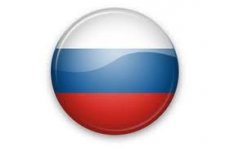New publications
Measles incidence in Russia has more than doubled in a year and a half
Last reviewed: 30.06.2025

All iLive content is medically reviewed or fact checked to ensure as much factual accuracy as possible.
We have strict sourcing guidelines and only link to reputable media sites, academic research institutions and, whenever possible, medically peer reviewed studies. Note that the numbers in parentheses ([1], [2], etc.) are clickable links to these studies.
If you feel that any of our content is inaccurate, out-of-date, or otherwise questionable, please select it and press Ctrl + Enter.

The incidence of measles in Russia has increased more than one and a half times in a year. This is stated in the decree of the Chief Sanitary Doctor of the Russian Federation Gennady Onishchenko.
According to the document, over the first seven months of 2011, the incidence of measles among Russians was 0.12 cases per 100,000 residents, which is 1.6 times higher than the figure for the same period last year. A total of 170 cases of infection were registered in Russia from January to July 2011.
The largest number of cases (59 people) was detected in Moscow. In the Astrakhan region, 26 cases of measles were recorded, in the Krasnoyarsk and Stavropol regions - 20 and 17 cases, respectively, in the Tomsk region - 14 cases. Children accounted for less than a quarter of all cases. Moreover, more than half of the adults infected with measles were not vaccinated against the infection.
Onishchenko's decree also reports an increase in the number of imported cases of measles. In particular, 33 such cases were identified in the first half of 2011, while for the whole of 2010, only 28 cases were detected. Eleven measles cases arrived from France, and another nine from Uzbekistan. In addition, the infection was imported to the Russian Federation from England, Germany, Italy, Latvia, Ukraine, Tajikistan, India, Indonesia, China, and Spain.
In addition, the chief sanitary doctor draws attention to the fact that in 2011, less than a third of Russians aged 18 to 35 were vaccinated against measles. In eight regions, this figure does not exceed 10 percent, and in 12 regions, vaccination has not yet been carried out.
Onishchenko instructed the heads of regional departments of Rospotrebnadzor to ensure vaccination of at least 95 percent of the population of Russian regions. In addition, the regions were instructed to submit vaccination data necessary for the preparation of documents in connection with the certification of Russia as a measles-free territory.
